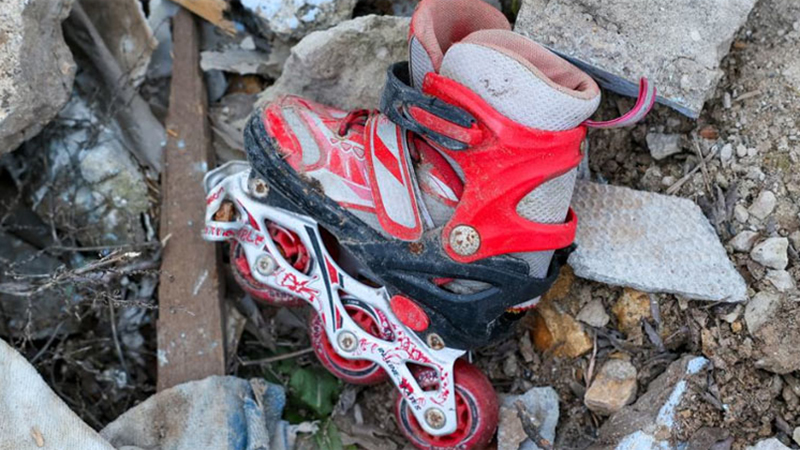Ukraine conflict: Rights expert report claims rape and torture by Russian forces continuing

Russian forces in Ukraine faced new allegations of war crimes on Monday as UN-appointed independent rights experts published the findings of their latest report into Russia’s full-scale invasion of its neighbour.
Members of the Independent International Commission of Inquiry on Ukraine told the UN Human Rights Council in Geneva that they have documented attacks with explosive weapons on residential buildings, civilian infrastructure and medical institutions, as well as torture and sexual and gender-based violence.
Rape allegations
Commission Chair Erik Møse provided harrowing details on the findings to the Council, noting that in the Kherson region, “Russian soldiers raped and committed sexual violence against women of ages ranging from 19 to 83 years”, often together with threats or commission of other violations.
“Frequently, family members were kept in an adjacent room, thereby forced to hear the violations taking place,” Møse said.
‘Widespread’ torture
The Commission said that its investigations in Kherson and Zaporizhzhia indicate the “widespread and systematic” use of torture by Russian armed forces against persons accused of being informants of the Ukrainian military, which in some cases led to death.
Møse quoted a victim of torture as saying, “Every time I answered that I didn’t know or didn’t remember something, they gave me electric shocks… I don’t know how long it lasted. It felt like an eternity.”
Probe into child transfers a ‘priority’
The Commissioners also indicated that they have continued to investigate individual situations of alleged transfers of unaccompanied children by Russian authorities to the Russian Federation.
“This item remains very high on our priority list,” Møse assured the Council.
Possible ‘incitement to genocide’
The Commission expressed concern about allegations of genocide in Ukraine, warning that “some of the rhetoric transmitted in Russian state and other media may constitute incitement to genocide”
Møse said that the Commission was “continuing its investigations on such issues”.
Call for accountability
The UN-appointed independent rights investigators emphasized the need for accountability and expressed regret about the fact that all of their communications addressed to the Russian Federation “remain unanswered”.
In their report, the Commissioners also urged the Ukrainian authorities to “expeditiously and thoroughly” investigate the few cases of violations by its own forces.
No equivalence
Replying to questions from reporters in Geneva on Monday, the UN-appointed independent rights investigators strongly refuted any suggestions of an equivalence in the violations committed by both sides.
Møse stressed that on the Russian side, the Commission had found a “wide spectrum” and “large number of violations”. On the Ukrainian side, there were “a few examples” related to indiscriminate attacks as well as “ill-treatment of Russians in Ukrainian captivity”, he said.
More in-depth investigations
The latest update reflects the Commission’s ongoing investigations during its second mandate, which started in April this year.
Møse said that it was now undertaking “more in-depth investigations” regarding unlawful attacks with explosive weapons, attacks affecting civilians, torture, sexual and gender-based violence, and attacks on energy infrastructure.
“This may also clarify whether torture and attacks on energy infrastructure amount to crimes against humanity,” the Commissioners said.
The Commission
The Independent International Commission of Inquiry on Ukraine was established by the Human Rights Council on 4 March 2022 to investigate all alleged violations and abuses of human rights, violations of international humanitarian law and related crimes in the context of the aggression against Ukraine by Russia.
Its three members are Chair Erik Møse, Pablo de Greiff and Vrinda Grover. They are not UN staff and do not receive a salary for their work.
The mandate of the Commission of Inquiry was extended by the Council last April for a further period of one year. Its next report to the General Assembly is due in October.



